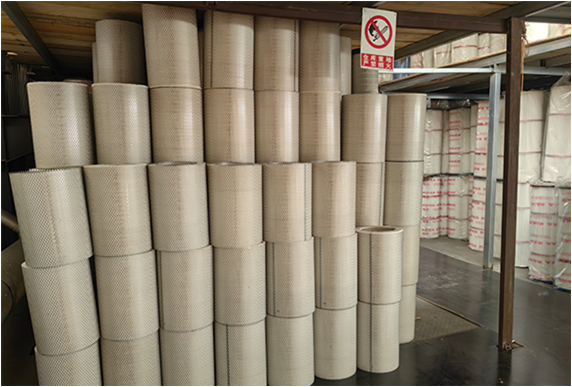 Tel:
+8618931101301
Tel:
+8618931101301
dec . 13, 2024 11:57 Back to list
sintered metal filter cartridge
Understanding Sintered Metal Filter Cartridges
Sintered metal filter cartridges are becoming increasingly popular in various industries due to their unique properties and exceptional performance in filtration applications. These cartridges are made through a process called sintering, which involves compacting metal powder into a solid form at high temperatures, without melting it. This results in a porous structure that allows for efficient fluid and gas filtration while offering durability and resistance to extreme conditions.
Advantages of Sintered Metal Filters
One of the primary advantages of sintered metal filter cartridges is their robustness. Unlike traditional filters, which may degrade over time or become clogged, sintered metal filters are designed to withstand high pressures and temperatures. This makes them ideal for applications in industries such as oil and gas, chemical processing, pharmaceuticals, and food and beverage production.
Moreover, these filters offer excellent mechanical strength. The sintering process creates a strong matrix that prevents breakage or deformation, even under challenging operational conditions. This strength ensures longevity and reduces the need for frequent replacements, ultimately lowering operational costs for companies.
High Filtration Efficiency
Sintered metal filter cartridges provide high filtration efficiency due to their unique pore structures. The manufacturing process allows for precise control over pore sizes, which can be tailored to specific filtration requirements. This versatility means that they can effectively remove particles of varying sizes, from large contaminants to microscopic impurities, ensuring that the filtered fluid or gas meets stringent quality standards.
Additionally, the uniformity of the pore structure aids in achieving consistent filtration performance. Unlike traditional filters that may have uneven distributions leading to channeling and bypassing, sintered metal filters offer a more homogeneous filtration process, ensuring that the entirety of the fluid or gas passes through the filter media effectively.
sintered metal filter cartridge

Cleanability and Reusability
Another significant advantage of sintered metal filter cartridges is their cleanability. These filters can withstand backwashing and chemical cleaning processes, allowing for the removal of accumulated particles without damaging the filter media. This feature is especially beneficial in processes where uninterrupted filtration is crucial.
The ability to clean and reuse sintered metal filters translates to significant cost savings and reduced waste, aligning with modern sustainability practices. Industries are increasingly focusing on reducing environmental impact, and reusable filter cartridges contribute to this goal by minimizing the frequency of filter disposal.
Applications of Sintered Metal Filters
Sintered metal filter cartridges find applications across various fields. In the oil and gas industry, they are used to filter drilling fluids, lubricants, and process fluids, ensuring the removal of solid contaminants that could lead to equipment failure. In the pharmaceutical industry, where adherence to sanitary standards is critical, these filters play a vital role in producing high-purity ingredients by eliminating microbial and particulate contamination.
In the food and beverage sector, sintered metal filters help maintain product quality by removing unwanted particles, ensuring that the final product aligns with consumer expectations and regulatory requirements.
Conclusion
Sintered metal filter cartridges represent a significant technological advancement in filtration solutions. Their durability, efficiency, and reusability make them a preferred choice in various industrial applications. As industries continue to prioritize cleanliness, efficiency, and sustainability in their processes, the role of sintered metal filters is expected to expand even further. Investing in sintered metal filter cartridges not only enhances performance but also contributes to cost savings and environmental responsibility, paving the way for a cleaner, more efficient future.
-
Material selection considerations for dust removal filter elements under high temperature conditionsNewsJun.23,2025
-
Cold knowledge of air filters: Why are some designed to be pleated?NewsJun.16,2025
-
Factory direct supply! High-precision air filter element wholesale and customizationNewsJun.12,2025
-
A complete analysis of the practical value of activated carbon filtersNewsJun.10,2025
-
Why are high iodine coconut shell activated carbon filters more durable?NewsJun.06,2025
-
Gas Turbine FilterNewsJun.06,2025

 Email:
Email:





